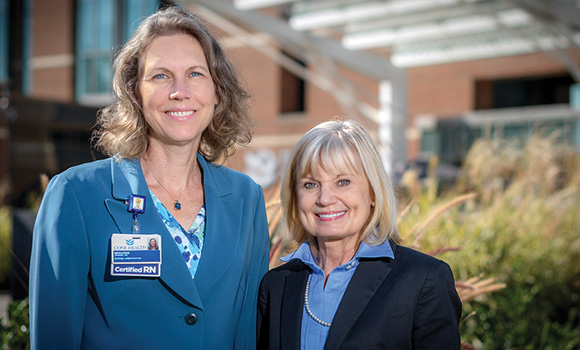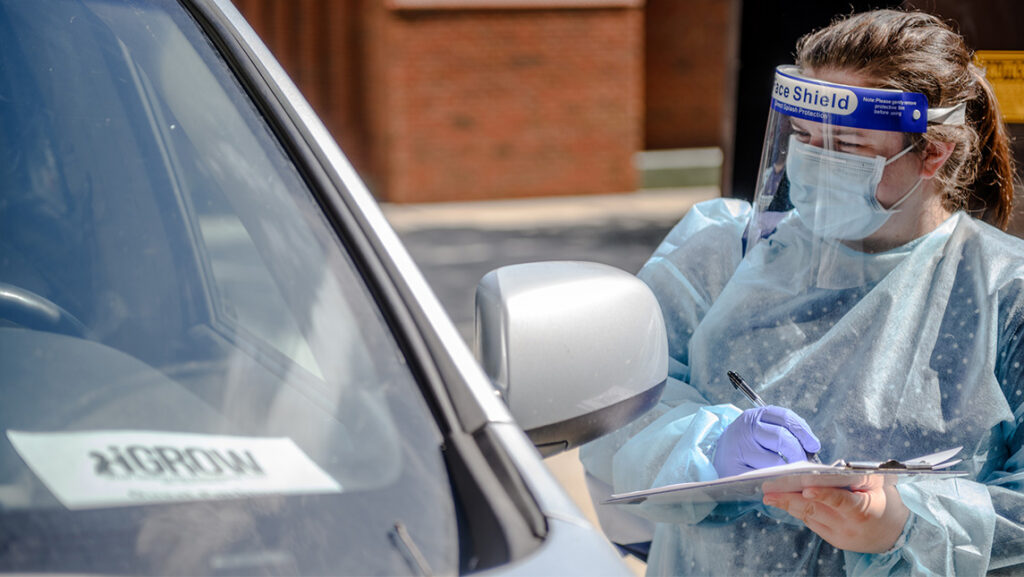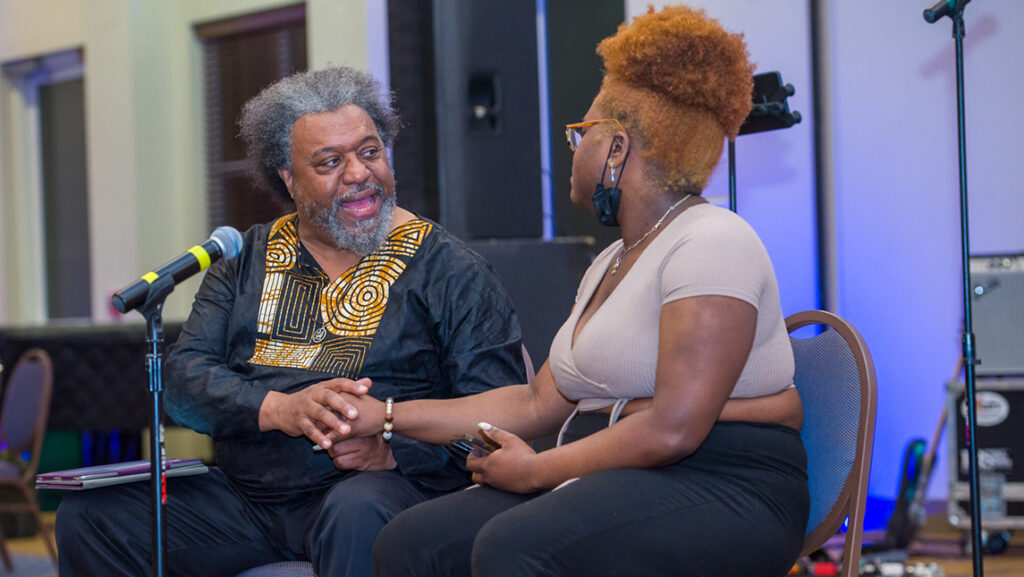If we have to be hospitalized, most of us hope to leave healthier than when we entered – or at least well on the road to recovery. But not everyone does.
Some patients head home and find themselves getting sicker instead of better, requiring even more treatment. Some even end up back in the hospital. What’s the difference between patients who make a full recovery and patients who don’t? One major factor is what doctors and nurses call “frailty” – a constellation of factors that include age, nutrition, psychological health, social supports and more.
When UNC Greensboro Assistant Professor of Nursing Deborah Lekan did her dissertation on frailty several years ago, she did a painstaking analysis of information drawn from electronic health records, which had just begun to change how nurses and other providers cared for patients.
“I basically had PDF copies of nursing documentation and physician notes,” she says.
Getting the information was time consuming and limited by how many records she could analyze herself.
But now, she and collaborators at UNCG and in Greensboro’s Cone Health System are harnessing the power of computers, sophisticated statistical techniques, and machine learning to dive much deeper.
The goal: Identify patients at risk of not fully recovering, in real time, and improve the care nurses and others provide for them.
“The tool we’re working on would allow clinicians to strategically target interventions based on the risk factors present for an individual,” Lekan says.
Her collaborators include Cone Health’s Director of Nursing Research Marjorie Jenkins, as well as statistician Thomas McCoy and computer scientists Somya Mohanty and Prashanti Manda at UNCG.
Using cutting-edge data science techniques, the team is analyzing reams of information from patients – everything from physician notes to lab results and medications.
The idea is to develop machine learning techniques that can uncover patterns and insights that human practitioners might miss on their own.
Lekan’s vision is an app on a hospital’s electronic health records that could improve care.
“It could red-alert the nurse,” she says. “It could prioritize treatments and flag the care specialists we want to loop in. Timely interventions are critical.”
This post originally appeared in UNCG Research Magazine as part of a larger story on big data. To read more and to view additional images, visit researchmagazine.uncg.edu.
Story by Mark Tosczak
Photography by Martin W. Kane, University Communications



